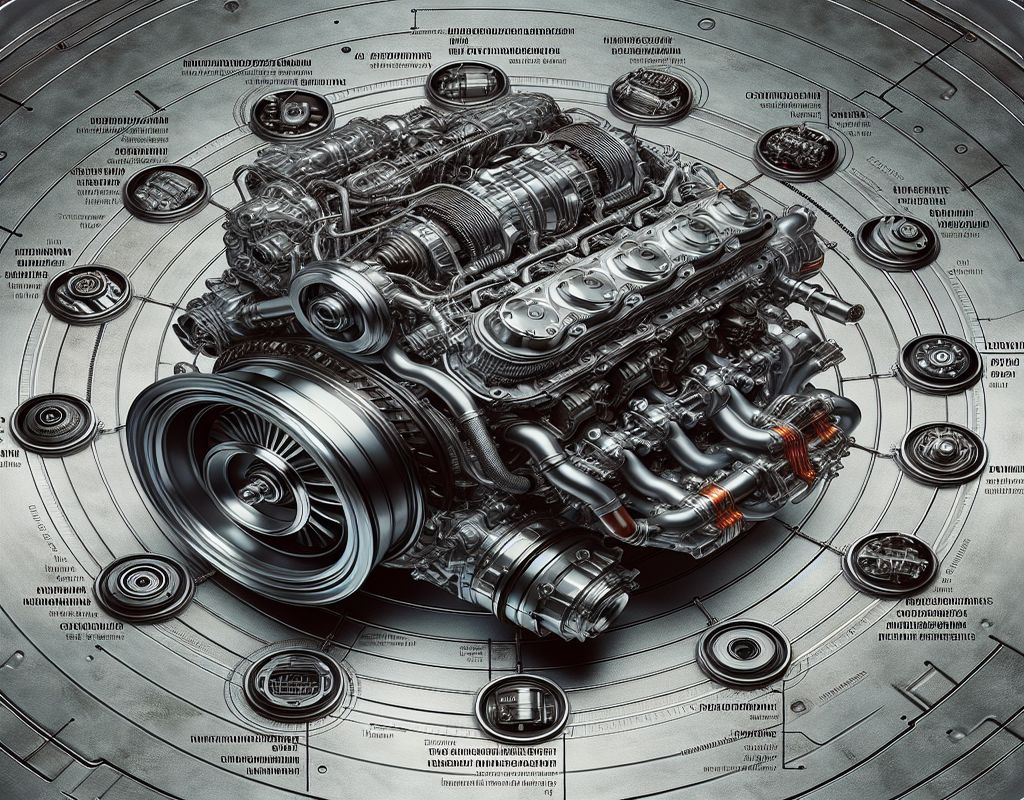Addressing Common Problems with Mercedes 2.0 Turbo Engines
In the automotive realm, Mercedes 2.0 Turbo Engines shine for their dynamic fusion of power and efficiency. These engines, a hallmark of various Mercedes-Benz models, leverage turbocharging technology in a 2.0-liter capacity to deliver top-tier performance while upholding fuel efficiency.
Understanding and managing prevalent issues linked to Mercedes 2.0 Turbo Engines play a pivotal role in safeguarding their longevity and optimal functionality. From combatting overheating dilemmas to tackling oil leaks, carbon buildup, and turbocharger malfunctions, proactive measures are key to preserving the engine’s well-being.
Overheating Woes
Causes and Effects
Overheating challenges in Mercedes 2.0 Turbo Engines often arise from cooling system glitches or inadequate coolant levels, jeopardizing engine performance and integrity.
Remedies
Regularly monitoring coolant levels, inspecting for leaks in the cooling system, and ensuring adequate engine airflow are vital steps in mitigating overheating concerns.
Battling Oil Leaks
Common Leak Sites
Oil leaks commonly manifest at the valve cover gasket, oil filter housing, or oil pan in these engines, potentially leading to reduced oil levels and engine wear.
Impact and Prevention
Neglected oil leaks can trigger lubrication issues, heightened engine wear, and safety risks from oil seepage onto hot components. Timely leak detection, addressing seepage promptly, and ensuring proper gasket installation are crucial preventive measures.
Tackling Carbon Buildup
Understanding the Issue
Carbon buildup, a prevalent challenge in direct injection engines like the Mercedes 2.0 Turbo, involves the accumulation of carbon deposits on intake valves, impacting engine efficiency.
Effects and Solutions
Unchecked carbon buildup can diminish fuel economy, lower power output, and incur costly repairs. Employing specialized fuel additives, conducting regular intake valve cleanings, and adhering to manufacturer-recommended maintenance schedules aid in combating carbon buildup.
Dealing with Turbocharger Failures
Identifying Signs
Turbocharger issues may manifest through power loss, abnormal exhaust smoke, or unusual turbo system noises, signaling potential failure.
Causes and Maintenance
Turbocharger failure may result from inadequate upkeep, subpar oil quality, or aggressive driving habits, underscoring the importance of routine inspections and diligent care.
Repairing the Turbocharger
In instances of turbocharger failure, seeking professional diagnosis and repair services is imperative to restore optimal engine performance and avert further damage.
Stay tuned for the next segment of this guide, where we delve into warranty coverage for Mercedes 2.0 Turbo Engines, essential maintenance insights, and strategies to prolong the lifespan of your cherished Mercedes powerhouse.
